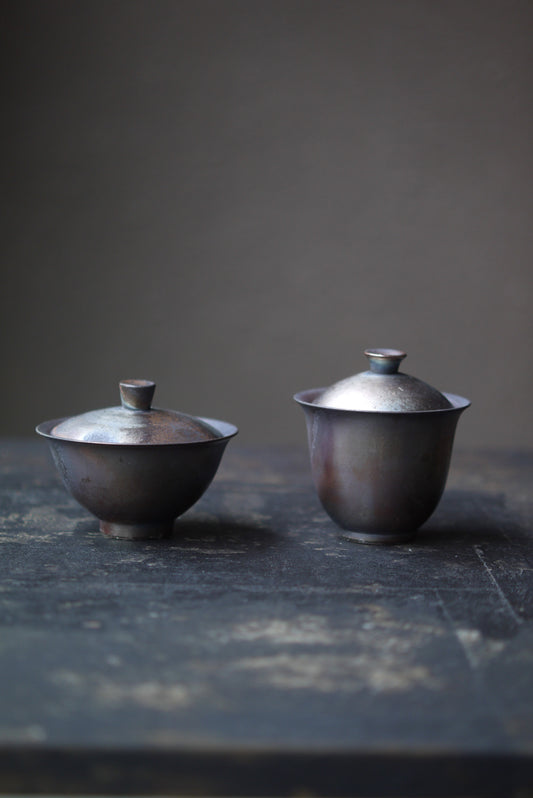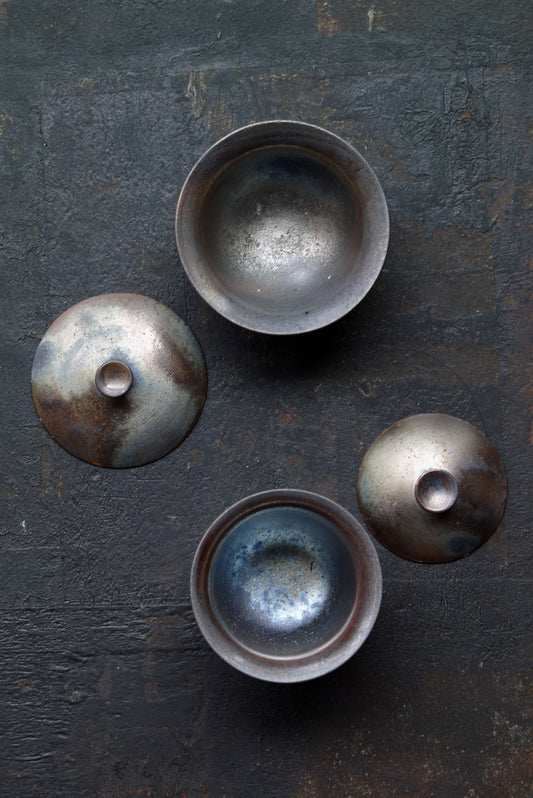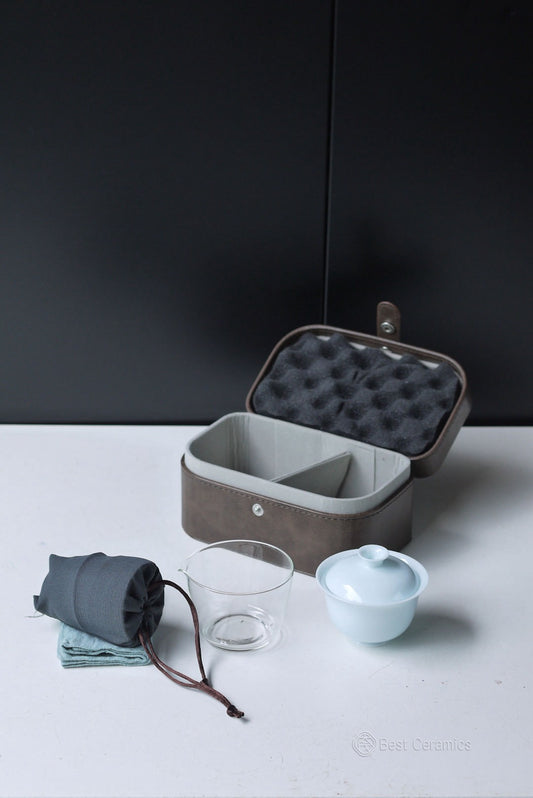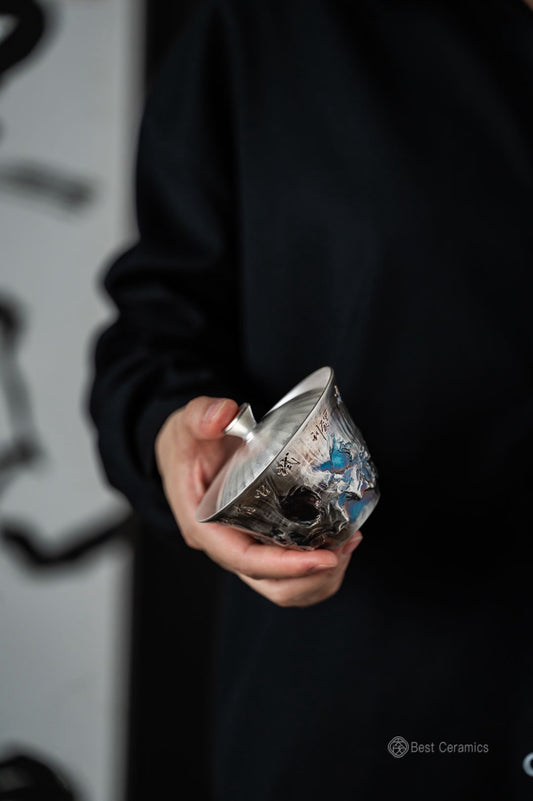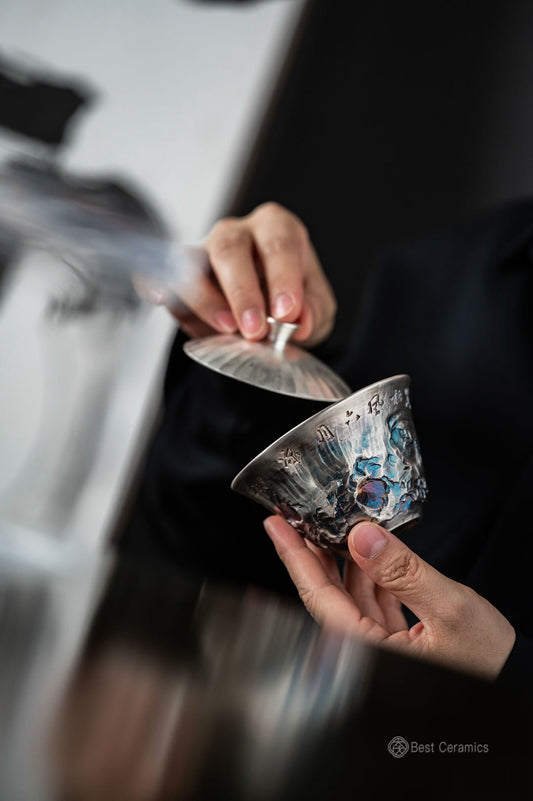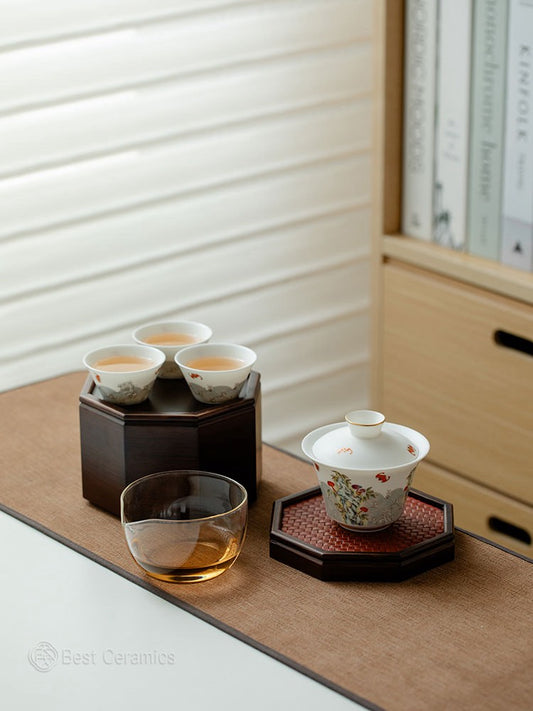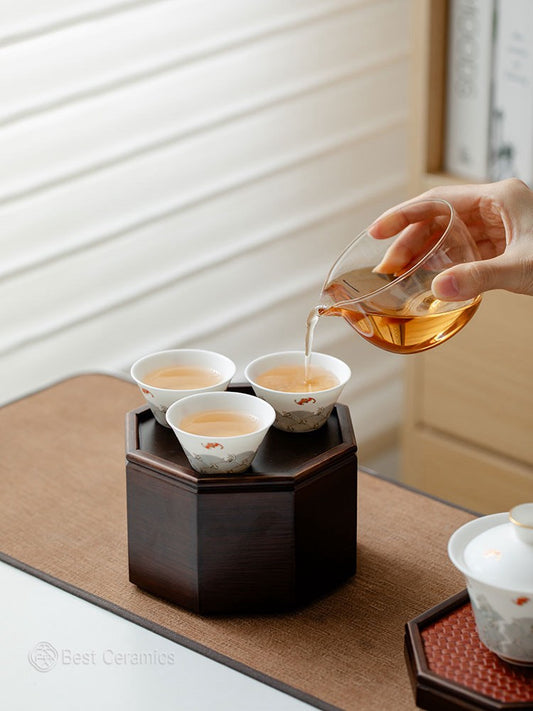
Longjing Tea: Unveiling the Essence of China’s Dragon Well
YuanKevinShare
Longjing tea, also known as Dragon Well tea, is one of China’s most celebrated green teas, renowned for its unique flavor, rich history, and cultural significance. This comprehensive guide delves into the origins, characteristics, brewing methods, suitable teaware, and additional considerations for Longjing tea enthusiasts.
What is Longjing Tea?
Originating from the West Lake region in Hangzhou, Zhejiang Province, Longjing tea boasts a history dating back over a millennium. Its name, “Dragon Well,” is derived from a local spring believed to possess mystical properties. Recognized as one of China’s top ten teas, Longjing holds the prestigious title of a geographical indication product, underscoring its unique regional identity.
Characteristics of Longjing Tea
Longjing tea is distinguished by its “four uniques”:
- Color (色绿): The tea leaves exhibit a vibrant green hue, and when brewed, the liquor presents a clear, greenish-yellow color.
- Aroma (香郁): It exudes a fresh, delicate fragrance that is both soothing and invigorating.
- Taste (味甘): The flavor is mellow and sweet, leaving a pleasant aftertaste that lingers.
- Appearance (形美): The leaves are flat, smooth, and uniformly shaped, resembling sparrow tongues.

Photo Provided by ChaYuan Jiushe
These attributes contribute to Longjing tea’s esteemed reputation among green teas.
What Constitutes a High-Quality Longjing Tea?
Several factors determine the quality of Longjing tea:
- Harvest Time: Tea picked before the Qingming Festival (early April) is termed “Mingqian” tea and is highly prized for its tenderness and superior flavor.
- Leaf Tenderness: Premium Longjing consists of young buds and leaves, typically one bud with one or two leaves, indicating meticulous hand-picking.
- Processing Technique: Traditional hand-firing methods are crucial. Skilled artisans use specific hand movements to achieve the tea’s signature flat shape and enhance its flavor profile.
- Origin: Authentic Longjing from the West Lake area, especially from renowned villages like Meijiawu and Shifeng, is considered top-tier due to the region’s optimal growing conditions.
How to Brew Longjing Tea
Proper brewing is essential to fully appreciate Longjing tea’s nuances:
- Water Quality: Use fresh, filtered water with low mineral content to avoid altering the tea’s delicate taste.
- Water Temperature: Optimal brewing temperature ranges between 80°C to 85°C (176°F to 185°F). Water that’s too hot can scald the leaves, resulting in bitterness.
- Tea-to-Water Ratio: A general guideline is 1 gram of tea per 50 milliliters of water. Adjust according to personal preference.
- Brewing Time: For the first infusion, steep the leaves for about 10 to 15 seconds. Subsequent infusions can be slightly longer, but avoid over-steeping to prevent bitterness.
Suitable Teaware for Brewing
Choosing the right teaware enhances the Longjing tea experience:
- Glass Teapot or Cup: Transparent glass allows you to appreciate the dance of the tea leaves as they unfurl, known as “茶舞” (tea dance).
- Porcelain Gaiwan: A traditional Chinese lidded bowl that offers control over brewing time and is excellent for appreciating the tea’s aroma and color.
- Avoid Yixing Clay Teapots: While excellent for oolong or black teas, Yixing clay can absorb flavors, which might interfere with the pure taste of green teas like Longjing.

Photo Provided By ChaYuan Jiushe
Additional Considerations
- Storage: Store Longjing tea in an airtight container, away from light, moisture, and strong odors. Refrigeration can help maintain freshness but ensure the tea is sealed properly to prevent moisture absorption.
- Freshness: Green teas are best consumed within a year of harvest. Over time, they can lose their vibrant flavor and aroma.
- Purchasing: To ensure authenticity, buy from reputable vendors. Be cautious of counterfeit products, especially those labeled as West Lake Longjing but sold at unusually low prices.
- Health Benefits: Rich in antioxidants, Longjing tea is believed to offer various health benefits, including improved metabolism and reduced stress. However, consume in moderation, especially if sensitive to caffeine.
Longjing tea is not just a beverage; it’s a reflection of Chinese culture, history, and artistry. By understanding its characteristics, proper brewing techniques, and the importance of quality, enthusiasts can fully immerse themselves in the exquisite experience that Longjing tea offers

